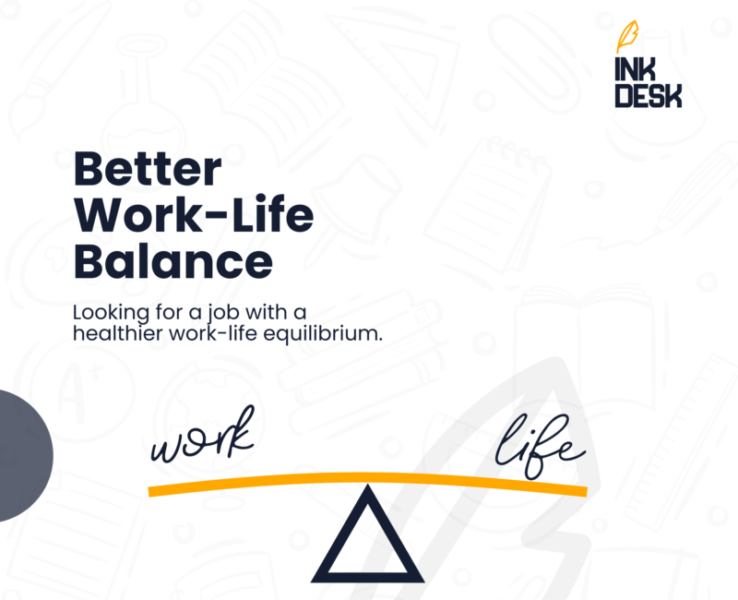Job change, job switch – call it what you will, but the fact remains that people often bid adieu to their current positions for various reasons. In Nigeria, as in many parts of the world, understanding the motivations behind this trend is crucial for both employees and employers.
So, let’s unravel the mystery of why people leave their jobs and what it means for the workforce.

1. The Pursuit of Better Opportunities
Hmm, the allure of greener pastures! Many individuals embark on a job change journey in search of better compensation and benefits. After all, who can resist the temptation of a higher salary, improved perks, or a more attractive benefits package?
Career Growth
Career advancement is another driving force behind job switches. Employees often seek roles that offer more significant growth prospects, whether it’s climbing the corporate ladder or acquiring new skills that could lead to better opportunities down the road.
See tips for career advancement in 2023.
2. Workplace Environment and Culture
No one wants to work in a toxic environment. Employees who experience excessive stress, discrimination, or harassment may decide to leave their jobs in search of a healthier work atmosphere.
Also, feeling like a cog in the machine can be disheartening. When employees don’t feel engaged in their work or see a meaningful connection to the company’s mission, they may start browsing job listings.
3. Work-Life Balance

In today’s fast-paced world, burnout is a real concern. Long hours, unrealistic expectations, and constant connectivity can push employees to the brink. When work-life balance tips too far in favor of work, it’s a recipe for job change.
Moreover, life events often necessitate job switches. From the arrival of a new family member to personal health issues, employees may find that their current job can’t accommodate their evolving circumstances.
4. Lack of Recognition and Appreciation
We all want our efforts to be recognized. When employees feel their contributions are going unnoticed and unappreciated, it can lead to job dissatisfaction and, ultimately, a decision to move on.
On the flip side, some individuals yearn for acknowledgment and praise. If they don’t receive it in their current roles, they may go hunting for positions that provide the recognition they crave.
5. Relationship with Management
As the saying goes, “People don’t leave jobs; they leave managers.” Ineffective leadership, micromanagement, or a lack of support from superiors can be powerful motivators for job change.
Trust is the cornerstone of a healthy employer-employee relationship. When trust erodes due to broken promises, secrecy, or unethical behavior, it’s a sign that it’s time to pack one’s bags.
6. Commute and Location Factors
The daily commute can be a real deal-breaker. Lengthy, stressful commutes steal precious time and energy. For some, avoiding traffic jams becomes a priority.
Besides, changes in personal circumstances, such as a spouse’s job or family needs, can require geographic relocation. This often leads to a job switch to accommodate the new location.
7. Feeling Undervalued
Employees want to feel like they matter. If they perceive that their skills and contributions aren’t valued by their current employer, they may actively seek out positions where they feel appreciated.
Sometimes, the job just isn’t the right fit. Employees may realize that their current role doesn’t align with their skills, interests, or values, prompting them to explore other options.
8. Pursuit of Passion
Yes, passion can also be a powerful motivator. Some people leave their jobs to pursue their dreams, whether that’s starting a business, pursuing a creative endeavor, or working in a field they’re genuinely passionate about.
That said, aligning personal values with one’s career is essential for job satisfaction. When there’s a disconnect between values and the company’s culture or practices, a job change may be in the cards.
You might want to checkout the materials needed for international scholarship opportunities.
Conclusion
So, why do people leave their jobs? It’s rarely a single reason; it’s often a complex interplay of factors. Employees yearn for growth, appreciation, work-life balance, and a sense of belonging. Employers, on the other hand, must take note of these factors to retain their talent and maintain a healthy, productive workforce.
Understanding why people leave their jobs is the first step toward fostering a work environment that encourages employee retention. Employers who prioritize employee satisfaction, growth opportunities, and a positive workplace culture are more likely to see their teams thrive.
On the flip side, employees should evaluate their career goals and personal priorities carefully before making the leap to a new job.
In the ever-evolving world of work, change is inevitable. However, by addressing the underlying causes of job change and working collaboratively, employers and employees can create win-win situations that benefit everyone involved.

